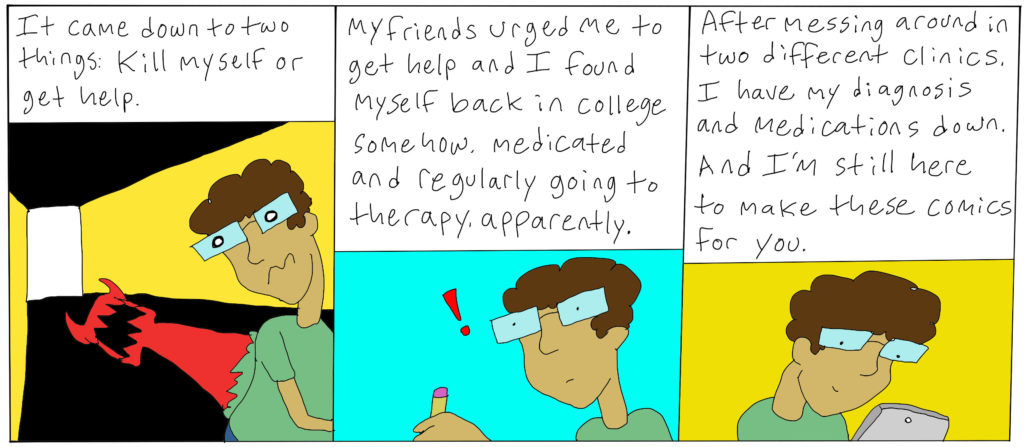
#PSYCHOTIC BREAK STORIES MOVIE#
On the Huffington Post, you can find a countdown of The Most Psychotic Movie Villains of All Time, featuring everyone from Freddy Krueger to Norman Bates. Trainspotting’s Begbie is described as “psychotic” in practically every review I have read ranging from the Guardian to the Sun (the latter also describes Begbie as “psychopathic”, using the terms interchangeably). Examples of journalists’ misuse of the word “psychotic” are everywhere. “That’s the media for you,” he said, brimming with frustration. Listening to my reflections on the negative associations of the word “psychotic”, he explained how common my feelings were in his clients. I read up on psychosis and had several sessions with a community mental health nurse. It wasn’t until I had taken the right drugs and rebalanced various chemicals in my brain that I began to listen to the professionals who were there to help me. Like many people who experience any kind of deep depression I lacked hope, but my warped state of mind took that further


We were all orbiting “reality” in our own ways. My fantasies of having committed a great sin escalated as I was taunted by one patient who believed she was the devil, and offered salvation by another who sang religious songs and walked around the ward with arms outstretched. Like many psychotic patients, I was convinced the nurses were out to get me, and that I was being punished for something. I said very little and did even less, but my mind was racing. Every patient was a character in my “story”, as were the nurses. I spent 10 days in a psychiatric hospital, silent and shy. “So I have done something wrong … maybe I am an evil person,” I thought. As I sat in my living room, being told I was psychotic, I interchanged the word with “dangerous” and felt myself spiral deeper into a delusion of guilt. As the mental health charity Mind states on its website, “lots of people wrongly think that the word ‘psychotic’ means ‘dangerous’”. Yet a glance through any film review section, in any newspaper or magazine, will probably suggest something different. The two are not linked, and they are certainly not the same. But the word with which “psychotic” is so regularly interchanged is “psychopathic”, defined as a “chronic mental disorder with abnormal or violent social behaviour”. According to the NHS, somebody who is psychotic will “perceive things differently to those around them this might involve hallucinations and delusions”.

I didn’t realise it then, but I was experiencing for the first time the true impact of misused words. Unsurprisingly, this added more weight to my own delusional and self-loathing narrative.
#PSYCHOTIC BREAK STORIES SERIAL#
It conjured up something very different, and very upsetting: serial killers and fictitious villains. But that simple message was not what I heard in the stigma-ridden word, psychotic. During my own episode of psychosis I was, in medical terms, detached from reality.


 0 kommentar(er)
0 kommentar(er)
